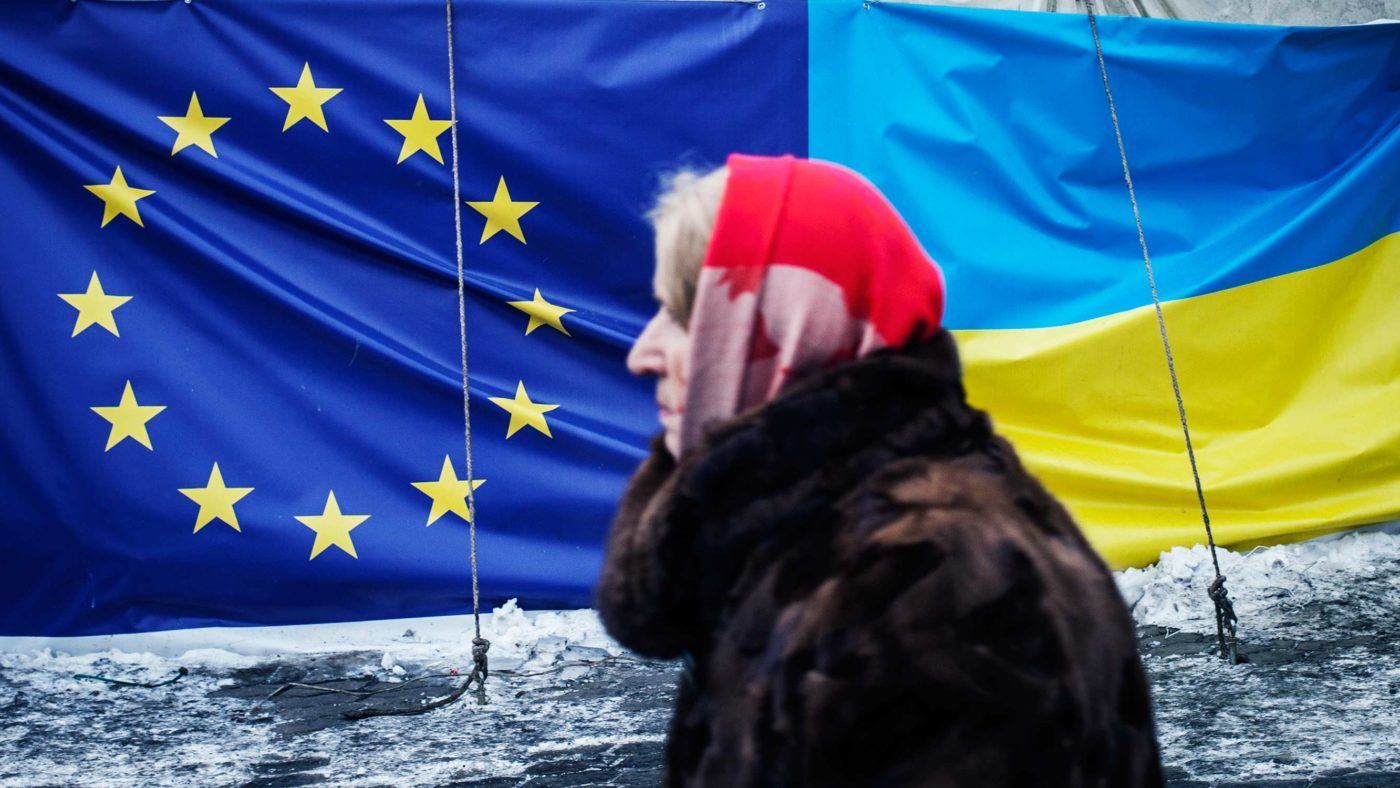Two years after the revolution of dignity, Ukraine remains in the lurch geopolitically.
Ukraine is outside the European Union’s sphere of influence, yet has cut formal political ties with Russia. Attempts towards moving westwards have hit European resistance and domestic foot dragging from old elites not too keen to stamp out corruption completely. Putin’s military interference in the east has drained crucial resources from the government in Kiev, and Russia attempts to portray Kiev as a failed state, and its elite as corrupt and ineffective, at every opportunity.
“This last point is one of the very few things I agree with Putin on,” said Orysia Lutsevych, head of the Ukraine forum at Chatham House. “The quality of the Ukrainian elite is still poor. There has still has not been a turnover in personnel yet. There are a number of very good people in the private sector and in civil society, but only a few of them managed to get into politics after the revolution.”
Indeed, politicians and oligarchs are a very similar group of people today as they were under Yanukovych. Figures such as industrialists Rinat Akhmetov and Victor Pinchuk remain important power brokers. Even those frozen out of power, such as steel and communications mogul Ihor Kolomoyskyi, retain considerable pull in the east of the country. President Poroshenko himself, while of a more liberal bearing, was still a powerful man in Yanukovych’s Ukraine.
Some strides have been made however. As Orysia put it:
“To give you one example, all state purchasing has now got to be done through an official government procurement website, Prozorro. It is incredibly transparent, and even more transparent than the EU, because you can simply search for what your local school is purchasing, what your hospital is purchasing, and what the ministry of agricultural purchasing.”
As she explained, this considerably reduced the scale of corruption possible in the public sector.
While full free trade agreements have faced European opposition, indeed being rejected at a recent referendum in the Netherlands, and face wider disagreement in Europe over how far to test the Russian temper, this has not put a halt to integration. The association agreement with the EU is slowly bringing Ukraine closer to Europe from the ground up.
“Ukraine has voluntarily adopted over 4000 European Union technical standards over the last three years. These have replaced the old Russian and Soviet standards, which were of a much lower quality,” Orysia explained.
As part of the agreement, Ukraine has attempted to bring its domestic governance in line with EU practice. As the Ukrainian economy becomes more open to the European single market, with more and more of its trade heading west, it seems likely that its politics will follow.
However, one key plank of this internal governance, Ukraine’s judiciary, remains unreformed. Sarah Jain, research fellow at the Royal United Services Institute, explained:
“The courts system in Ukraine remains endemically corrupt. It just hasn’t changed at all from the Yanukovych era. You have the same justices protecting the same interests.”
Indeed, Ukrainian judges are themselves immune from prosecution, giving them relatively free reign for corrupt activity. They consistently do not prosecute for even the most egregious corruption schemes. And of course, those corruption allegations that do make it to court are more often than not politically motivated.
New constitutional reforms announced earlier this month aim to start the process of reform, looking at whether to remove judicial immunity, but how effective these will be remains to be seen. And while the war in Donbass is now smouldering rather than aflame, it still poses a big problem. According to Orysia:
“Minsk 2 [the peace package agreed between Ukraine, Russia, France and Germany] does not provide a pathway to peace, it just froze the conflict. Indeed, this is why Putin agreed to it, and it’s the biggest leverage he has.”
It is for these reasons many on the Ukrainian side were not keen on signing it.
“For Putin, is this not a war about territory, he needs people in Ukraine to be running on banks and to disrupt the economy through fear to have influence in Ukraine.”
While the flow of body bags have slowed with the ceasefire, and many of the Russian regulars fighting in Eastern Ukraine have gone home, Russia still has the power to ramp up the conflict when it feels the need to squeeze Kiev.
That said there is also a sense in which Russia has already played its trump card in Eastern Ukraine. The areas of Donbass and Luhansk are now separate entities from the rest of Ukraine, and they have no real influence on what is going on elsewhere in the country. A deal by which they are fully integrated back into the political system seems a remote possibility at this stage.
This allows the rest of Ukraine, despite heightened costs of keeping the peace in the east, to get on and do its own thing. While Ukraine faced significant economic costs due to the loss of the industrial regions of the Donbass, it is now making up this loss with growth elsewhere. Besides, as prime rust belt, the Donbass as it stood was unlikely to provide a dynamic source of growth even in the best of situations.
In many ways, the war in the east is now more of an issue of international legality and long-term security than an immediate threat to domestic governance.
Ukraine will remain in geopolitical limbo for a good time to come. However, it seems clear that despite the glacial pace of reform, Ukraine is still slowly drifting westwards. While corruption, European intransigence and the war in the east still puts considerable limits to what can be achieved, Ukraine looks set to slowly integrate into the European economy.
It will continue to so, unless Putin decides to do something drastic.


